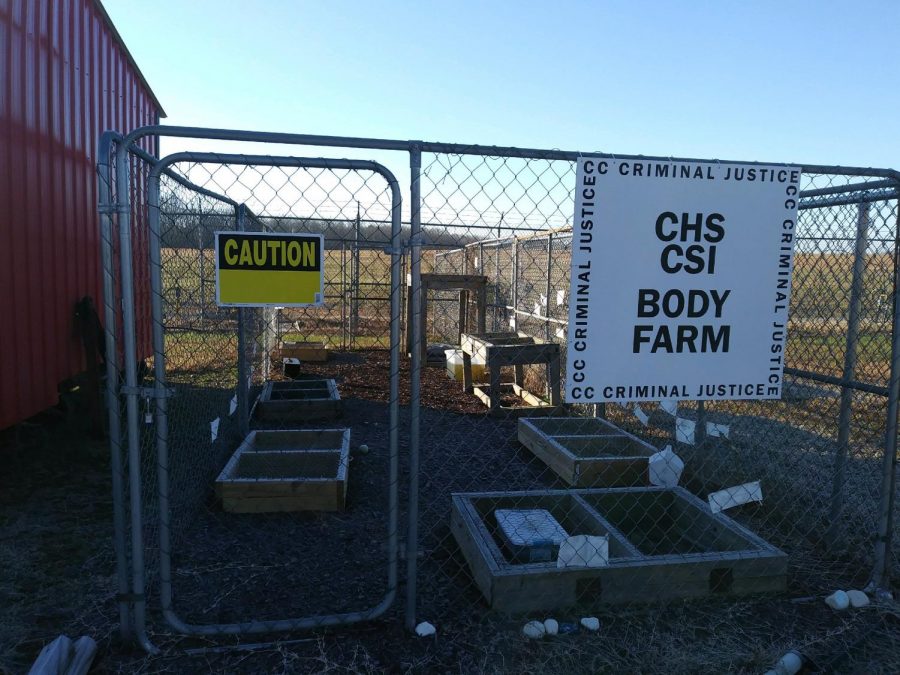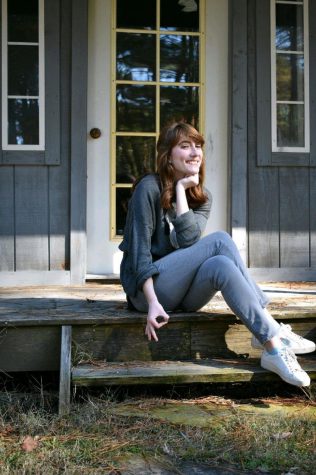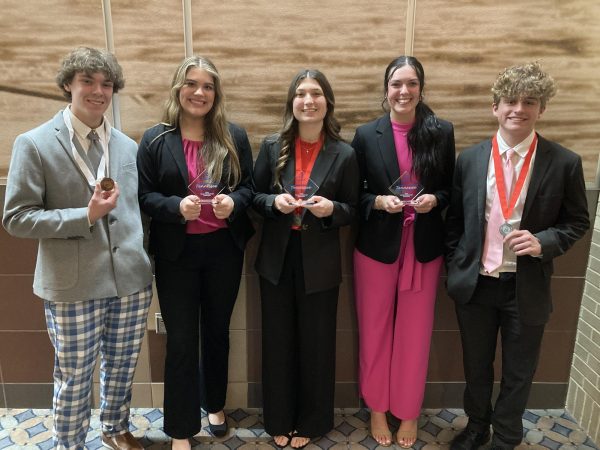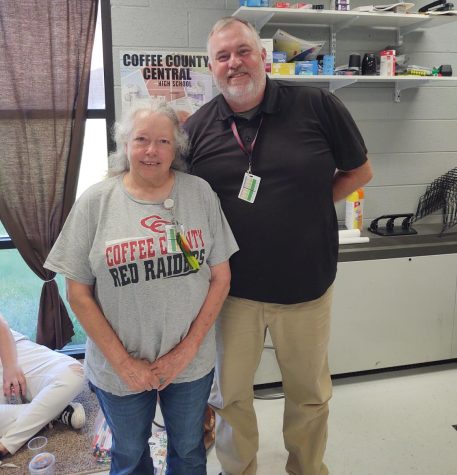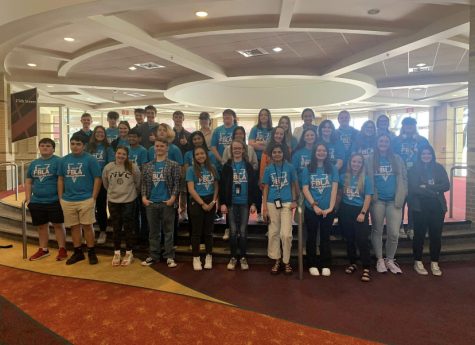The Origins of the CHS CSI Body Farm
The CHS CSI Body Farm offers students the opportunity to prepare for future careers in law enforcement.
December 4, 2019
Tucked away in the far corner of our school’s campus lies a small lot enclosed by a chain link fence. The lot is flanked by a shed and another chain link fence that stretches from the school to the fence that encircles the landfill. A small sign hangs on the entrance to the lot, reading “CHS CSI Body Farm.”
The Body Farm has actually been on the school’s campus for ten years, but has long gone unnoticed by the student body due to its small size and secluded location.
I recently sat down with Mrs. Mindy Acklen, one of the Criminal Justice teachers at Coffee County Central High School, to find out more about the mysterious “Body Farm” located on our campus.
“I had been to a training,” began Acklen, “and there was a gentleman there that was a teacher from East Tennessee, and he was talking about how interested he was in… the body farm at UT [Knoxville] and he said, ‘That would be so cool to have one on campus,’ and I said ‘Yes it would…’ so I started researching it a little bit.”
She continues, “[I was reading] a magazine called Forensic Teacher and it was talking about how you can do a small [specimen] box… And I thought, ‘We can do something bigger than that…’ So that’s how we got the idea.”
One would likely wonder where Acklen was able to find the funds to build a body farm on campus. Acklen actually paid for the body farm herself: “My husband and I actually bought the dog kennels out of our pocket and then… he built the specimen boxes for me.”
Unfortunately, the Criminal Justice department is unable to study human cadavers in the body farm as human cadavers are incredibly expensive. However, it wouldn’t be a “body farm” without some kind of body in it. So what kind of bodies do they keep in there?
“Fetal pigs – they can either purchase a fetal pig preserved in saline or they can purchase a pig’s foot. Now, when we first started it years ago we did pig’s feet and chickens because I wanted them to see the difference between how a pig’s foot decomposed as comparison to a whole chicken. We use pigs because a pig is the closest you can get to the decomposition of a human.”
Still, one can’t help but wonder how studying pig decomposition ties into Criminal Justice. “The [Criminal Justice III] class is actually called ‘Forensic Investigations,’ so one of the standards in Forensic Investigations is Decomposition and Autopsy…”
Since Coffee County doesn’t have a medical examiner, local law enforcement officers have to be trained on how to handle bodies and how to preserve the scene of a crime. This class gives students opportunities to learn those skills.
Mrs. Acklen’s classes study the decomposition of these fetal pigs after simulations of various deaths, such as stabbing, shooting, freezing and burning. Students are then able to track how each type of death affects the decomposition of the body.
With this educational body farm, the Criminal Justice students at CCCHS have an excellent opportunity to further their forensic science knowledge and prepare for future careers in law enforcement.



